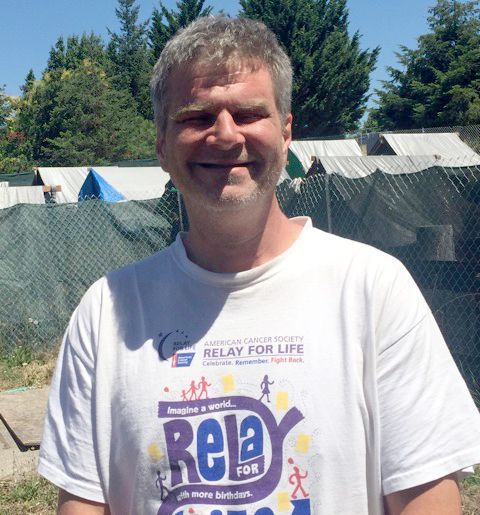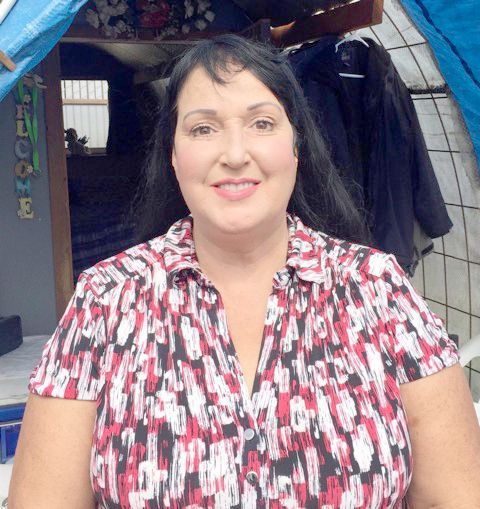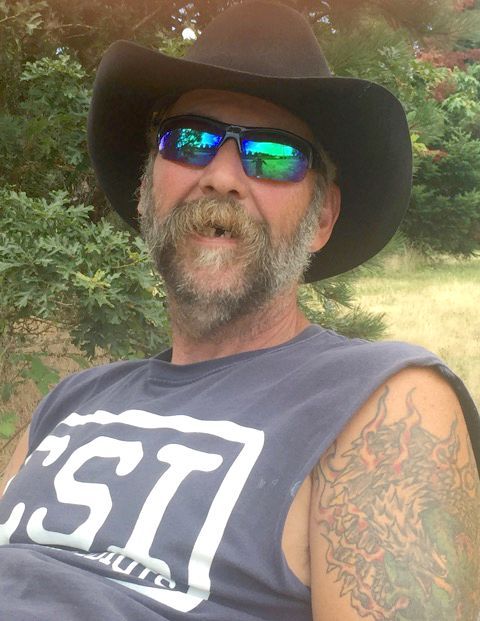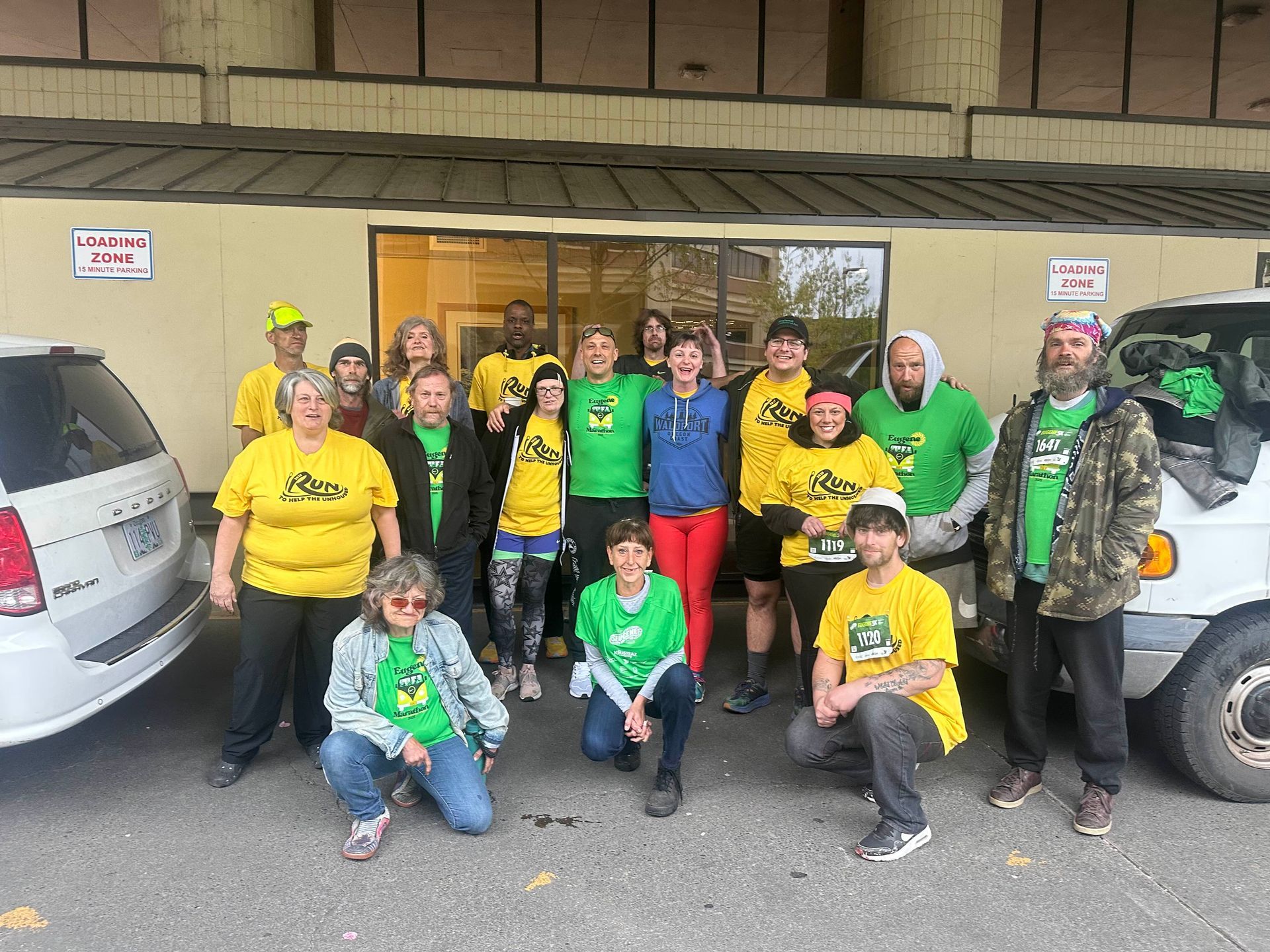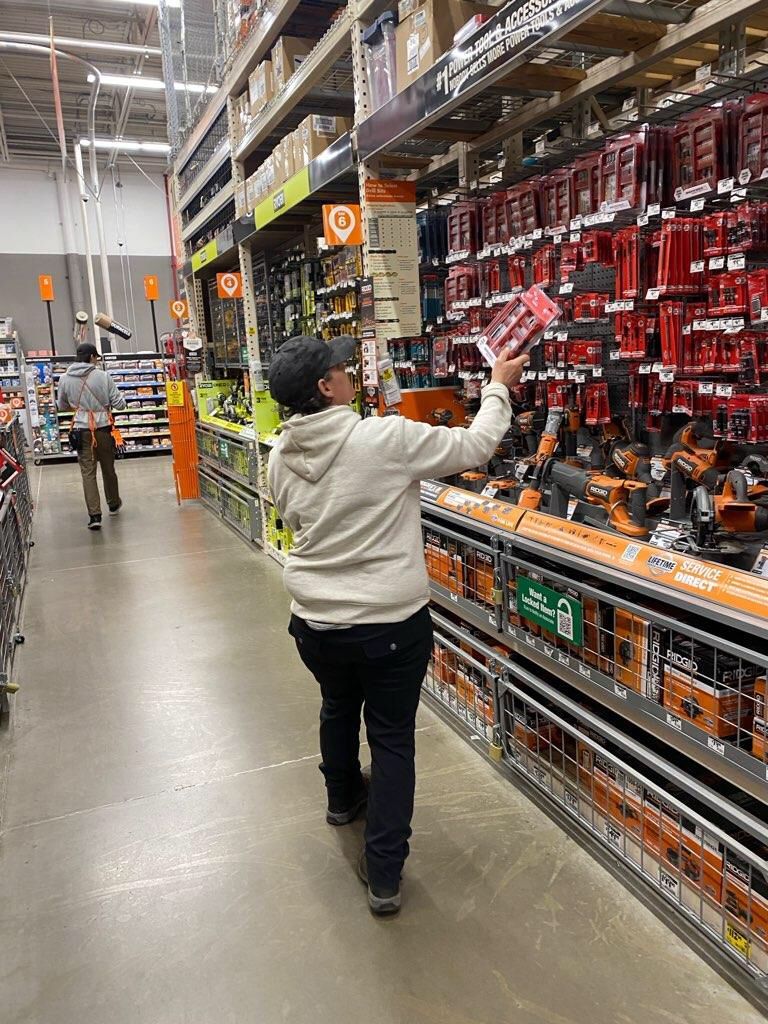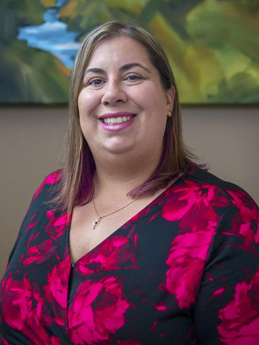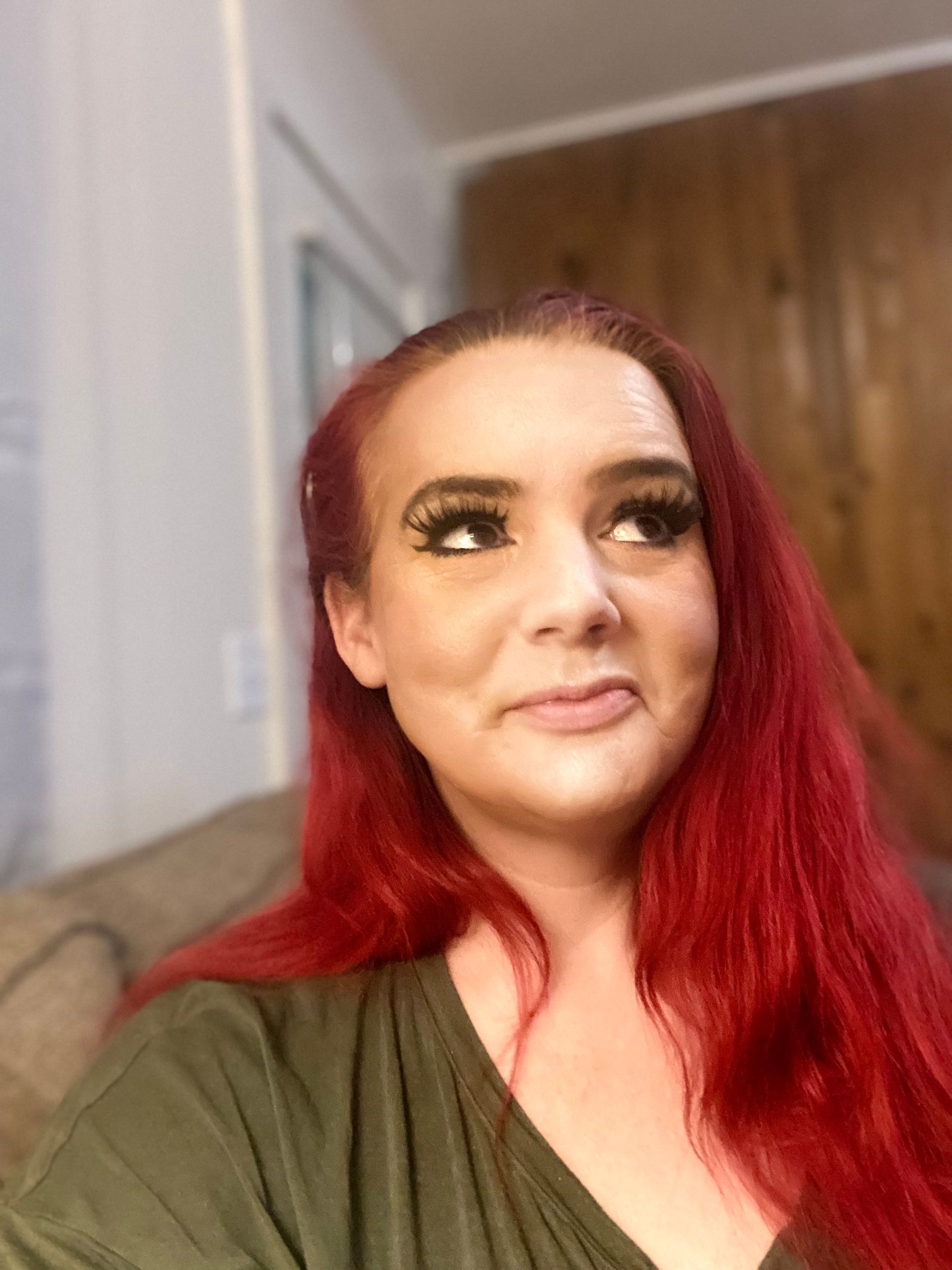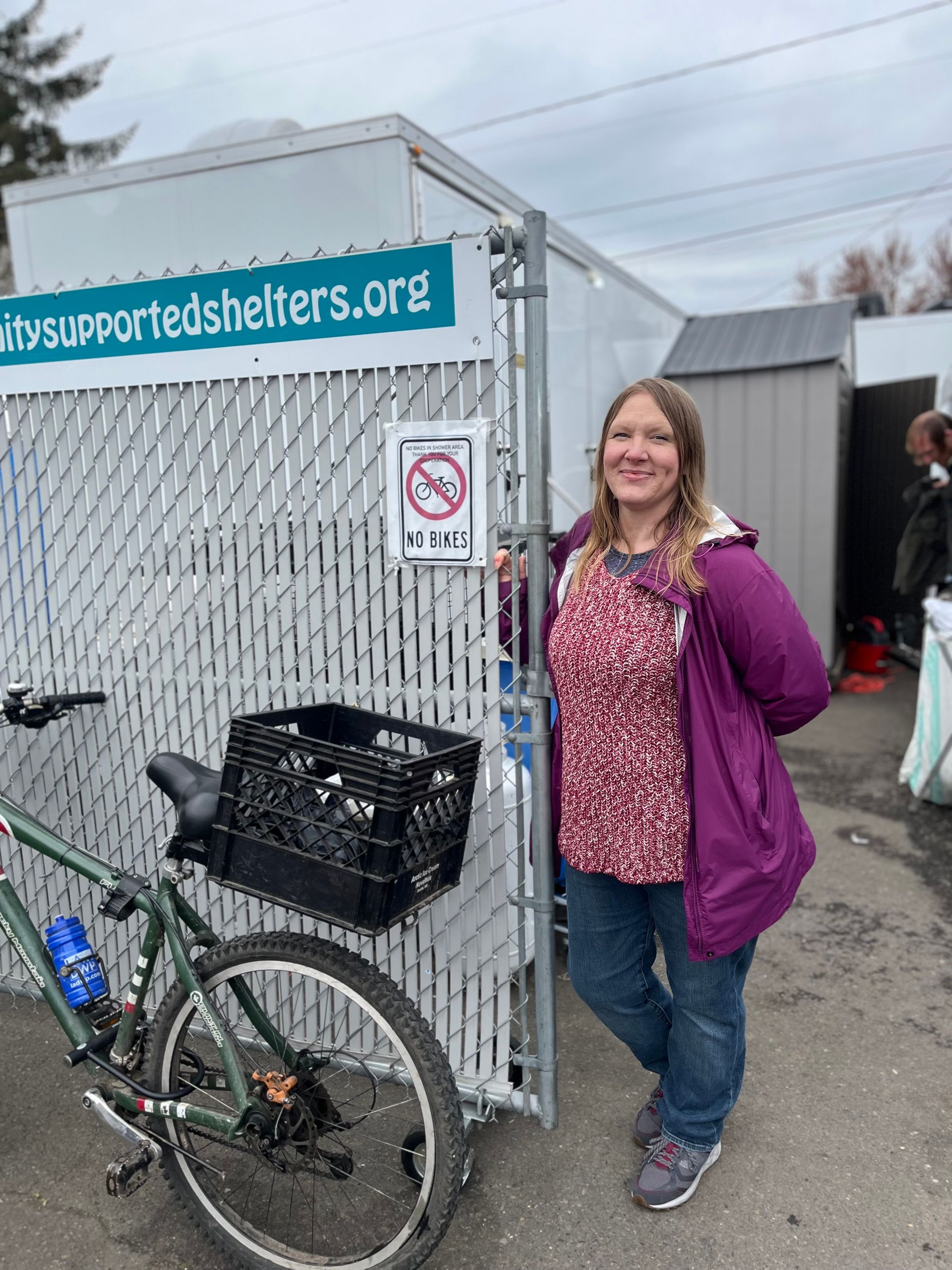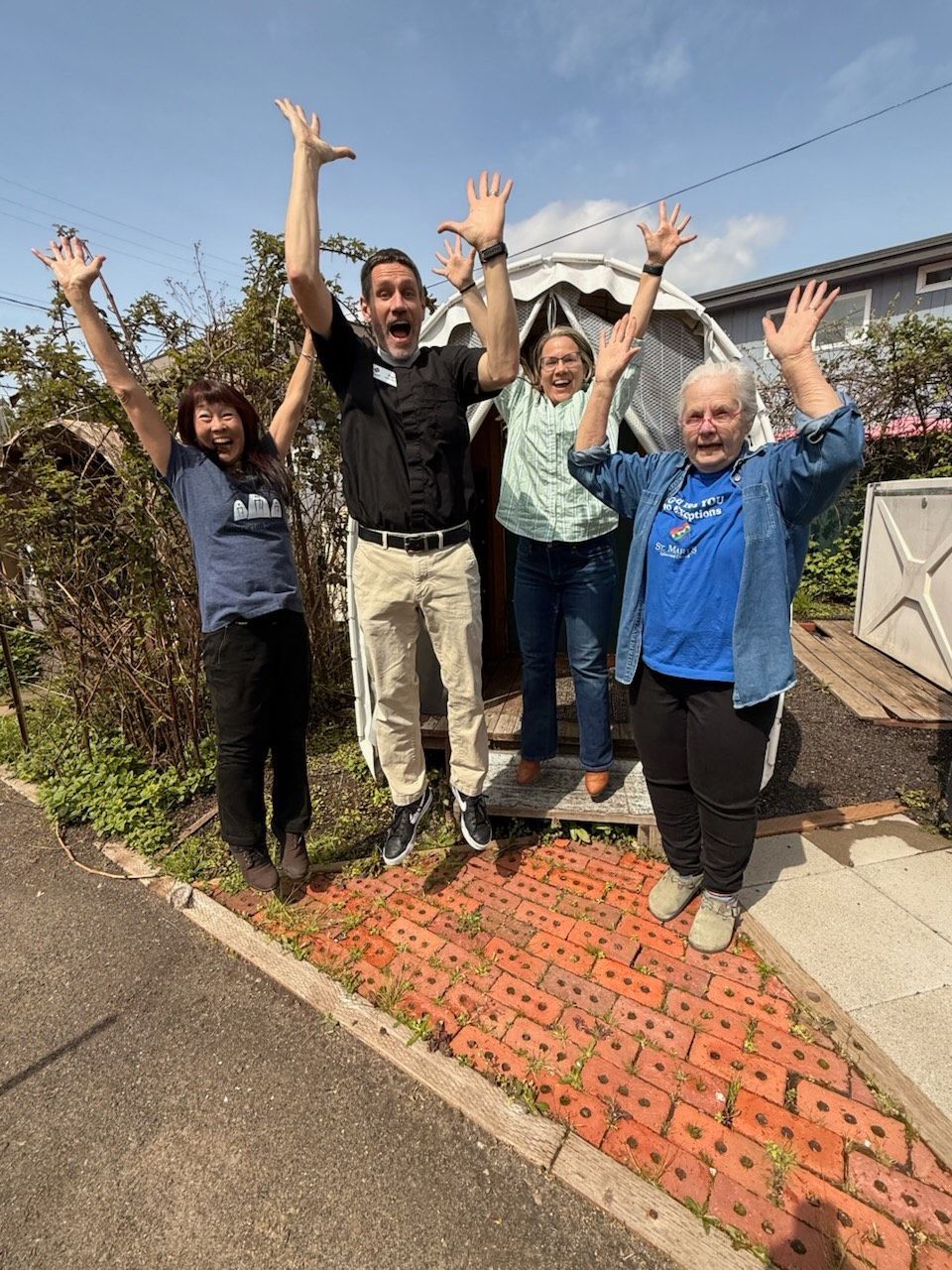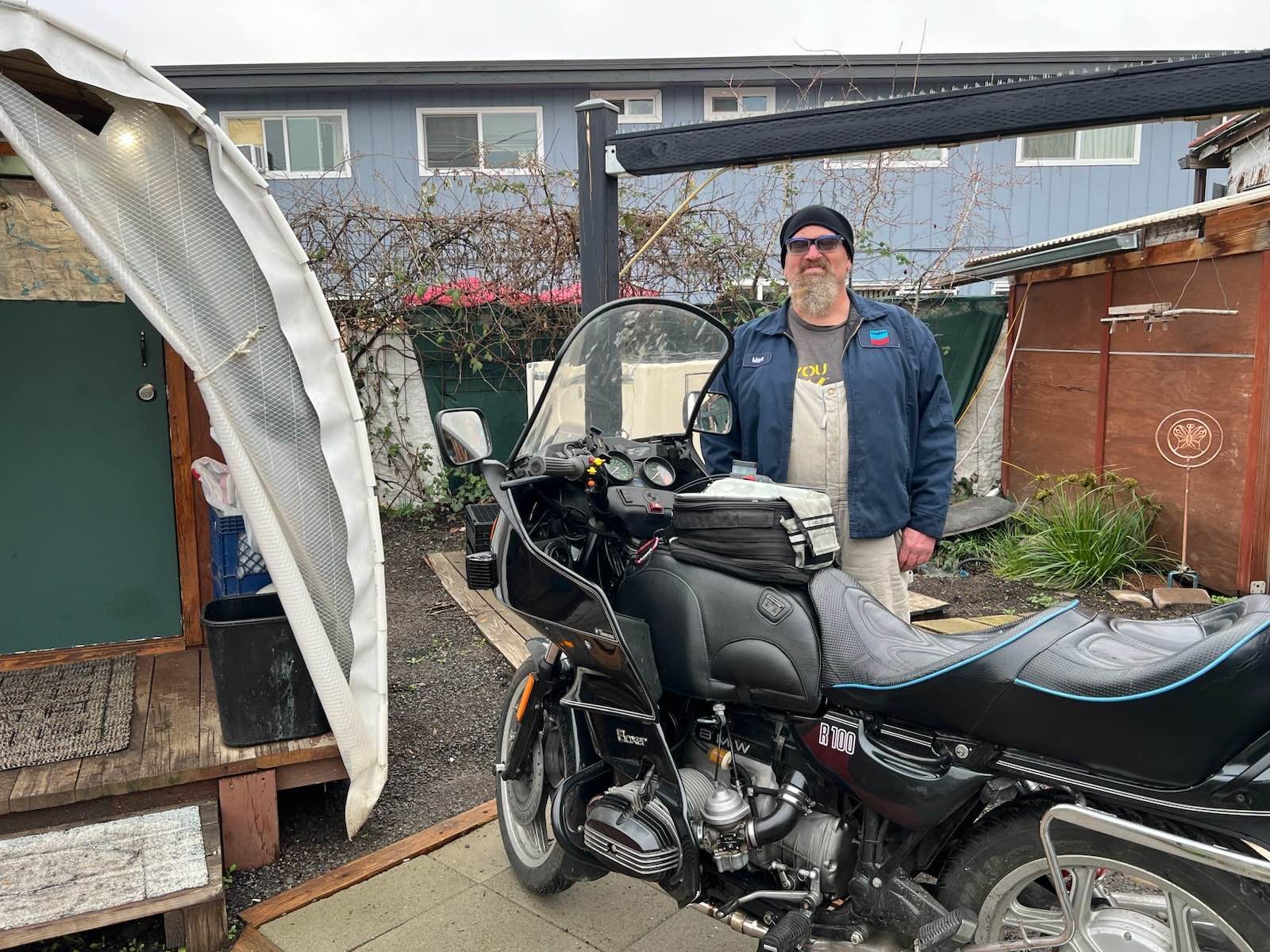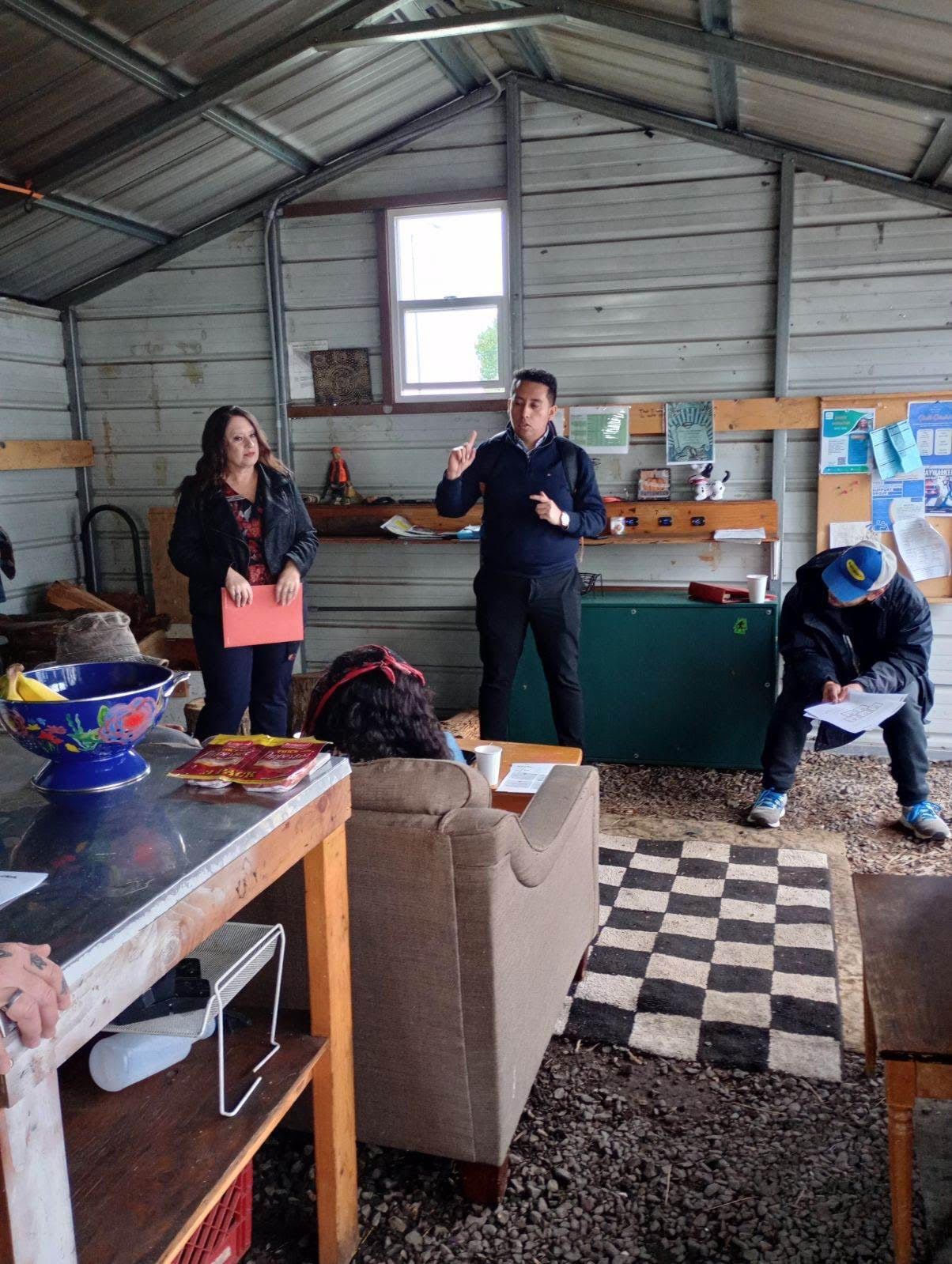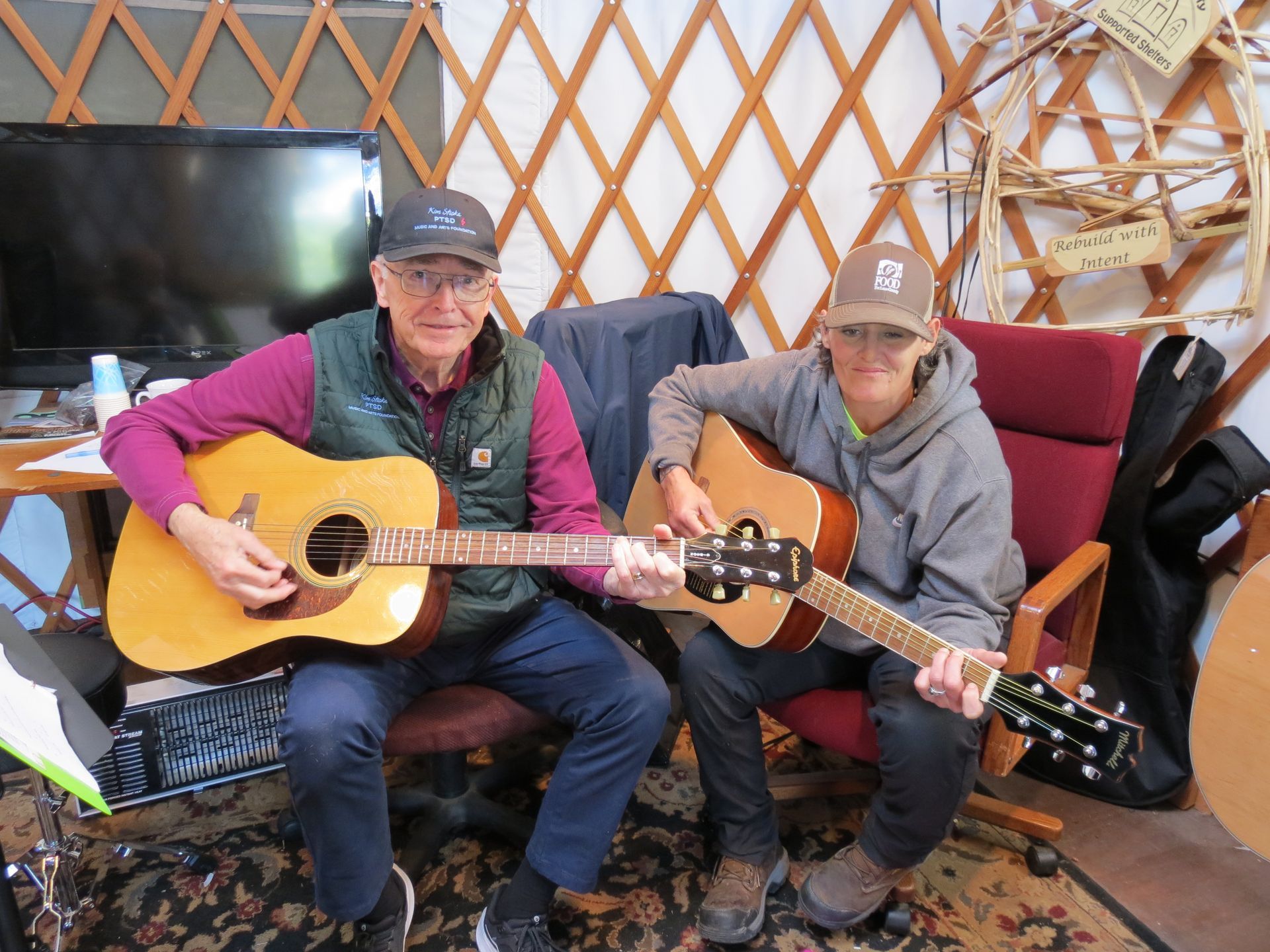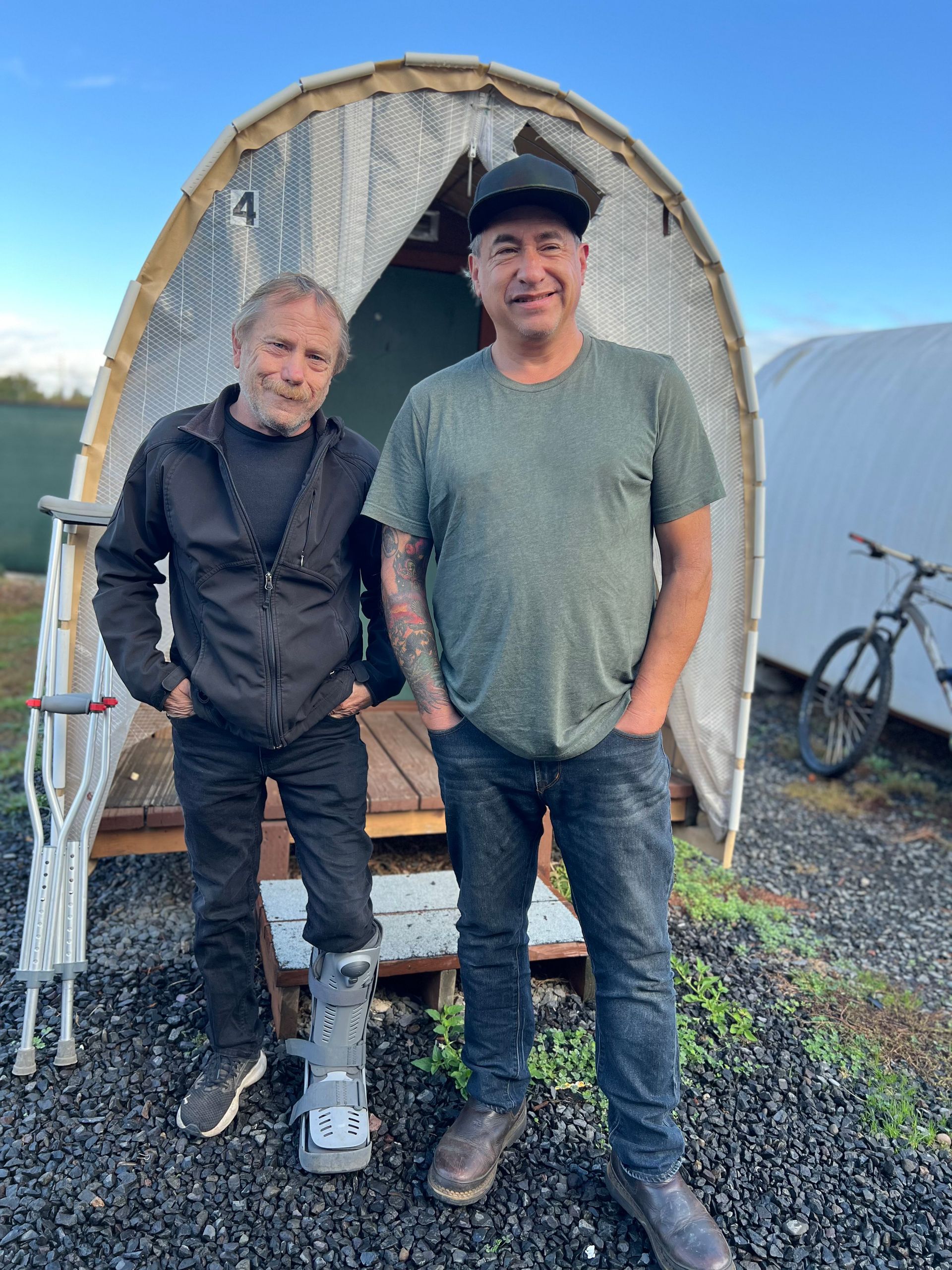Losing More Than A Smile: Teeth problems among the homeless
Josie McCarthy, manager of The Dining Room, a Food for Lane County program that serves up to 300 free meals four days a week, estimates that 75 to 90 percent of its diners have significant teeth problems. “We think about it all the time,” she says—in the type of food that is served and how it is prepared, “cooking the hell out of vegetables,” chopping salads, pureeing fruits. And Josie constantly reminds volunteer servers to be aware of and sensitive to the condition of the diners’ teeth.
“It would be rare for us see a homeless person whose teeth are in good shape,” says Kim Freuen, clinic coordinator at the White Bird Dental Clinic, where about 10 percent of 2000 annual clients are homeless.
“A lot of time homeless people don’t have the ability to care for their teeth,” Kim says. “If you have nothing, every day you’re looking for food, you’re looking for water and where you can sleep, trying not to lose your belongings. So teeth are kind of down the list.”
Ree Wearin, dental case manager at HIV Alliance and volunteer bookkeeper for CSS, says teeth problems for the people she works with—about half of her 205 active clients from all around Oregon are homeless or underhoused—are compounded by the stigma associated with HIV, both because some dentists are reluctant to care for such patients and because the patients shy away from dental care for fear of that reaction.
For Chris Plourde, his bad teeth are in his genes. Two brothers have lost all their teeth and his sister has only been able to keep hers by spending “thousands and thousands of dollars,” an option not available to him.
Sherri Newman, 54, a resident of CSS’s Roosevelt Safe Spot, says her teeth went bad one after another over a seven-year period. “I’d gotten a few extractions but it was very painful because as soon as I’d get a tooth pulled another one would go bad,” she says. Now she’s more than happy to flash a bright white smile with the new dentures she’s had about a year now, thanks to help from White Bird.
Dave Morgan, 55, who has lived at the Chambers Safe Spot since February, says he tried to maintain his teeth. He had dentures many years ago and wanted to get implants but couldn’t afford it. “I had good teeth. I planned to do all this [to improve them],” he says, “but when [his 11-year-old daughter] Samantha died, so did that dream and then I just didn’t care anymore. My teeth have been hurting me on and off for 10 years.”
Chris says part of the perception problem that he has encountered is that in Eugene bad teeth are often associated with methamphetamine use. “It seems like you get pigeon-holed as a certain kind of individual,” he says, “but I’ve never done that stuff.” When he first started at LCC, he was “kind of chatty” with other people, but as he became more aware of negative initial reactions, he deliberately withdrew from engaging others. “It really got bad over the last year and I started falling into these states of depression which are very different for me,” he says.
“I used to suffer from depression way back, but I figured out why and kind of eliminated that from my life,” Chris says. “Then, I could say that all of that stuff originated inside of me so I felt empowered because if I’m the problem, then I could be the solution. But this was coming from outside of me and it seemed like an obstacle that no matter what I did, I’d just get this fear. Imagine going up to someone and getting that reaction and knowing that no part of it is coming from anything you are doing.”
Josie McCarthy sees that sort of battered self-esteem from her Dining Room clients. “People don’t smile,” she says. “They lose their jaw shape. They look older. They are so defeated.” Ree Wearin of HIV Alliance perceives the same thing. “It’s really hard to smile with your teeth rotting and it becomes a real barrier when you don’t have the ability to smile and talk openly.”
Having to avoid smiling makes it harder to get a job, especially one that requires interacting with the public, says White Bird’s Kim Freuen. And it’s not just smiles that people with bad teeth lose, she says. “You notice how your mouth can change a lot of situations, frowning or surprise—a lot of emotions are displayed by your eyes and your mouth.” Ree says her clients with visibly bad teeth find it harder to get housing, perhaps because of the association with drug use or possible criminal history.
Kim describes broader health problems caused by bad teeth. “If you have chronic infection in your mouth because of decay or gum and tissue being infected, those infections can get in your blood stream and affect your heart. If you are diabetic, it affects your ability to control your diabetes. If you have joint replacement, it can affect your joints. Oftentimes people will come in and say ‘I need to have surgery but they won’t let me until my teeth are dealt with.’ So it definitely affects all of your health and your ability to take other steps to make yourself well.“
Dave Morgan, a long-time truck driver, arrived at the Chambers Safe Spot last February after what he describes as a “decade of nothing—wandering in the darkness,” grieving the death of his daughter. “Then it came to me,” he says. “Maybe I can start stepping forward.”
One of his realizations is that “to get back to being what I believe to be the essence of me,” he had to focus on taking things one small step at a time. First, he concentrated on his health. He’s lost almost 55 pounds. His once-high blood pressure has returned to what it was when he was 35 years old. He wore out a donated mountain bike by riding 125 miles a week. He does 200 pushups a day. He stayed off cigarettes and didn’t touch alcohol for eight months. No drugs. He started eating right.
“All the bullshit everybody always says you should do,” he says—“Well, I did it.”
Now, he decided, it was time for his teeth: ”I hadn’t cared about my smile because I had been living in this awful place—no dignity, nothing but grief and despair. But now it’s time to get it back,“ he says. “To me, the teeth are part of the puzzle and after all that, I’m going to feel like a new and improved me which I haven’t felt like in a dozen years.”
Dave is working through White Bird, where he got the initial exam and help with the paperwork for insurance and referrals for extractions and dentures. “My dentist [at White Bird] is a really cool dude. He’s like, ‘You’re telling this story. You’ve got some sort of frickin’ energy going on.’ He’s going to get my smile back.”
Sherri Newman says the two-and-a-half years she’s spent at the Roosevelt Safe Spot have given her the stability to finally deal with her teeth problems in a comprehensive way. “I never would have been on my feet enough to take care of myself like this,” she says. “You have to have a home base to heal from surgery. I can’t imagine sleeping under a bridge and having to heal like that.”
Ree at HIV Alliance says her work is most rewarding when she sees the change in her clients after they’ve had their teeth fixed. “It’s wonderful to see them stand taller and smile broader.”
The same goes for Kim at White Bird. “It’s wonderful,” she says. “They are very pleased. Sometimes we’ll have people who have really decayed front teeth and we are able to correct it. Just those small changes make such a difference to their confidence. It’s like the thorn out of the lion’s paw: they feel better and they’re happy.”
The Dining Room’s Josie McCarthy sees the same thing. “When they get new teeth, the first thing they do is come in and they smile.”
Sherri Newman is only too happy to flash her Hollywood white smile. “It’s changed my life,” she says. “Before, I would always smile with my mouth close and I didn’t want to smile in pictures. I can smile now and I don’t feel weird. I don’t have to be self-conscious. People react to me differently. I feel like I’m more confident. I can talk to people and smile at them and just be myself.”
White Bird Dental Clinic
Kim Freuen, clinic coordinator at White Bird Dental Clinic, says most homeless people are eligible for the Oregon Health Plan and Lane County has many dental providers, in addition to White Bird, who accept clients on OHP. But, she says, “We like to think of ourselves as homeless friendly.”
Part of the clinic’s mission is to serve the homeless, Kim says, and some of the clinic’s funding comes from a Health Care for the Homeless grant. The clinic performs general dentistry, which allows its dentists and hygienists to do exams, cleanings, and fillings. For oral surgery, which is covered by OHP and is needed by many homeless people, patients must go to a general dentist like White Bird for a referral.
Kim urges homeless people to come and get a cleaning and an examination even if their teeth aren’t hurting. “We would like to see as many homeless people as we can,” she says. “We are here to help them: Let us clean your teeth. Let us help you keep your teeth so that you’re not at the point where you are in so much pain that you need to come in. We prefer to save teeth than to take them out but a lot of people have that misconception that you only go when it hurts, so they do end up losing more teeth.” She also urges anyone who works with homeless people to encourage them to come to the clinic.
White Bird Dental Clinic, 1400 Mill Street, 541 344 8302
HIV Alliance
HIV Alliance’s dental care program is available to people who are living with HIV/AIDS and have incomes below 250 percent of the federal poverty level, according to Ree Wearin, dental case manager. Clients are connected with dentists and provided with transportation and lodging if necessary—clients come from all over the state. The program works with dentists throughout Oregon but has an especially close relationship with the LCC Dental Clinic, which gives priority to the alliance’s clients, teaches good dental hygiene, and trains its staff in working with HIV clients. LCC has satellite clinics in Medford and Salem.
Insurance, usually OHP, is billed first, but the agency will pay for all pre-approved expenses not covered by insurance. Treatment is often “repairs of last resort,” Ree says, but regular check-ups and cleanings are encouraged—up to four times a year. She says it’s unfortunate that OHP does not pay for work such as bridges and crowns, so extractions are the most common approach to serious problems. Once people start losing teeth it’s harder to keep the ones that are left. But she still appreciates the coverage that allows her clients to address their dental problems.
HIV Alliance, 1966 Garden Avenue, 541 342-5088


